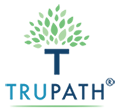What is Zoloft?
Zoloft is the brand name of Sertraline, a prescription medication that works to balance serotonin levels in the brain of people suffering from mental health disorders like major depressive disorder, social anxiety disorder, panic disorder, suicidal ideation, post-traumatic stress disorder (PTSD), premenstrual dysphoric disorder, and obsessive-compulsive disorder. While it is usually employed as a treatment for depression alongside therapy, it is also used “off-label” to treat generalized anxiety disorder and eating disorders as well.
Zoloft comes in liquid or tablet form. It is not a controlled substance as it does not induce any type of high or euphoria, and does not have many street names, although it may be referred to as “bottled smiles” by some individuals.
Zoloft Effects
This medication is what is known as an SSRI, a selective serotonin reuptake inhibitor that enhances nerve cell functions in the brain, blocking the reabsorption of released serotonin, thus allowing more serotonin to enter between certain brain cells. This “unblocks” communication between them, and can have effects like:
- Improved mood
- Higher energy levels
- Restored appetite
- Removing the urge to perform repeated tasks
- Decreased fear and panic
- Improved sleep quality
- Restored interest in daily life
- Reduced intrusive thoughts
Some common side effects include:
- Weight gain
- Constipation
- Dry mouth
- Headache
- Nausea
- Insomnia
- Restlessness
- Increased sweating
Signs of Zoloft Abuse and Addiction
Zoloft is psychologically addicting, and you can also develop a physical dependence that can result in withdrawal symptoms if you try to quit cold turkey instead of tapering off slowly. A chemical dependence on Zoloft can occur even if the medication is taken as prescribed. Some people may try to misuse Zoloft (Sertraline) to deal with their daily problems, and they may feel they cannot function without taking this medication. Some signs a person may need professional addiction treatment to quit Zoloft include:
- Taking larger or more frequent doses than prescribed
- Seeing more than one doctor (doctor shopping) to get several Zoloft prescriptions
- Faking symptoms to get a Zoloft (Sertraline) prescription
- Taking somebody else’s Zoloft medication
- Being unable to get through the day without Zoloft
- Feeling distressed or paranoid when they run out of Zoloft
- Noticing physical and psychological withdrawal symptoms when they stop taking this medication
Zoloft Withdrawal Symptoms
If you have been taking Zoloft for a long period of time and quit suddenly (instead of tapering off slowly under the watch of a medical professional) you may experience withdrawal symptoms like:
- Anxiety, irritability, and paranoia
- Memory and concentration problems
- Depression
- Nightmares
- Fatigue
- Stomach issues
- Dizziness
- Flu-like symptoms
- Headaches
Zoloft is a medication with a fairly short half-life, meaning once you stop taking it, the medication will be out of your system quickly, which causes the serotonin levels in the brain to drop suddenly in what is known as SSRI discontinuation syndrome, which lasts for one to three weeks on average, although some people have the uncomfortable symptoms for weeks or months after quitting, especially those who have been taking Zoloft for years.
A substance abuse treatment program with a medication-assisted treatment (MAT) plan can help you to taper off your SSRI medication on a safe schedule as you receive medical care and other treatments, along with mental health care and therapy, for a whole-patient approach to healing and working through your anxiety, depression, PTSD, or other mental illness at the same time. You will be able to taper off the Sertraline (Zoloft), with long-term connections to doctors and therapists who can help you through these difficult times and get you to a happier, more productive, and healthy lifestyle.
Long Term Side Effects of Zoloft Abuse
Some of the risks of Zoloft abuse and the side effects of Zoloft include:
- Anxiety and nervousness
- Vomiting, diarrhea, and nausea
- Headaches
- Abnormal bleeding
- Serotonin syndrome
- Neuroleptic malignant syndrome
- Suicidal thoughts
Zoloft Addiction Treatment
At TruPath, we not only provide the entire continuum of care, from detox to inpatient and outpatient levels of care, but we also provide access to medical professionals, therapists, peer groups, holistic practitioners and other addiction professionals who can help you heal your body, mind, and spirit through a customized, integrated treatment program designed to help you quit Zoloft and get your mental illness under control. Treatments we offer include:
- Holistic treatments and therapies like art therapy, meditation, and yoga
- Behavioral therapy like cognitive behavioral therapy and dialectical behavior therapy
- Medical care and medication management services
- Evidence-based individual therapy, group therapy, and family therapy
- Biofeedback
- Experiential therapy
- Sober living homes and long-term recovery resources
- Executive treatment programs
- Case management services
- Dual diagnosis services for anybody dealing with substance use disorder and co-occurring disorders like anxiety, depression, bipolar disorder, schizoaffective disorder, PTSD, ADHD, eating disorders, etc.
Please contact our rehab center today for insurance verification or to learn more about how we can help you overcome a physical and/or psychological addiction to Zoloft, with mental health care services customized to your individual needs. We are here to help you get healthy, heal the roots of your addiction, and become the person you want to be with your physical and mental health under control.
